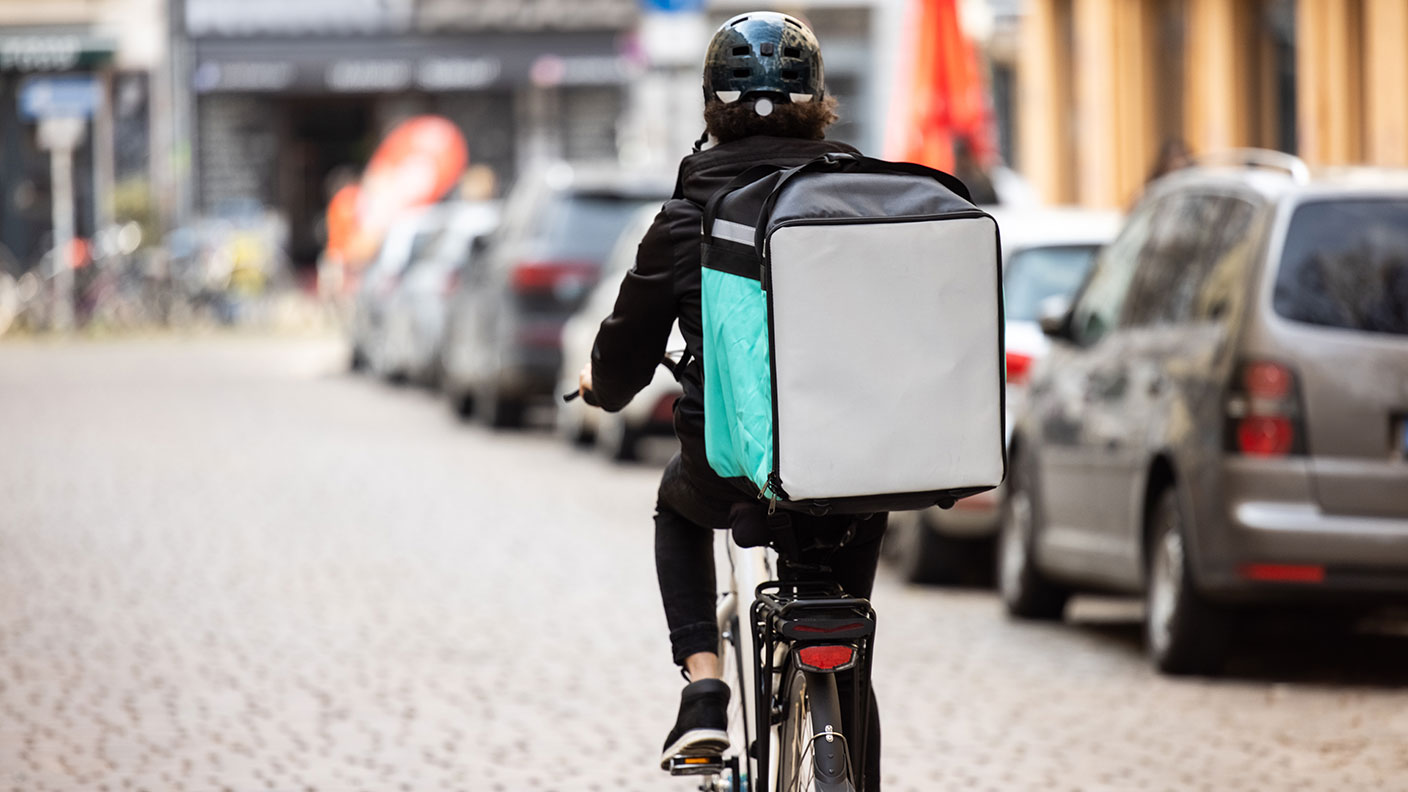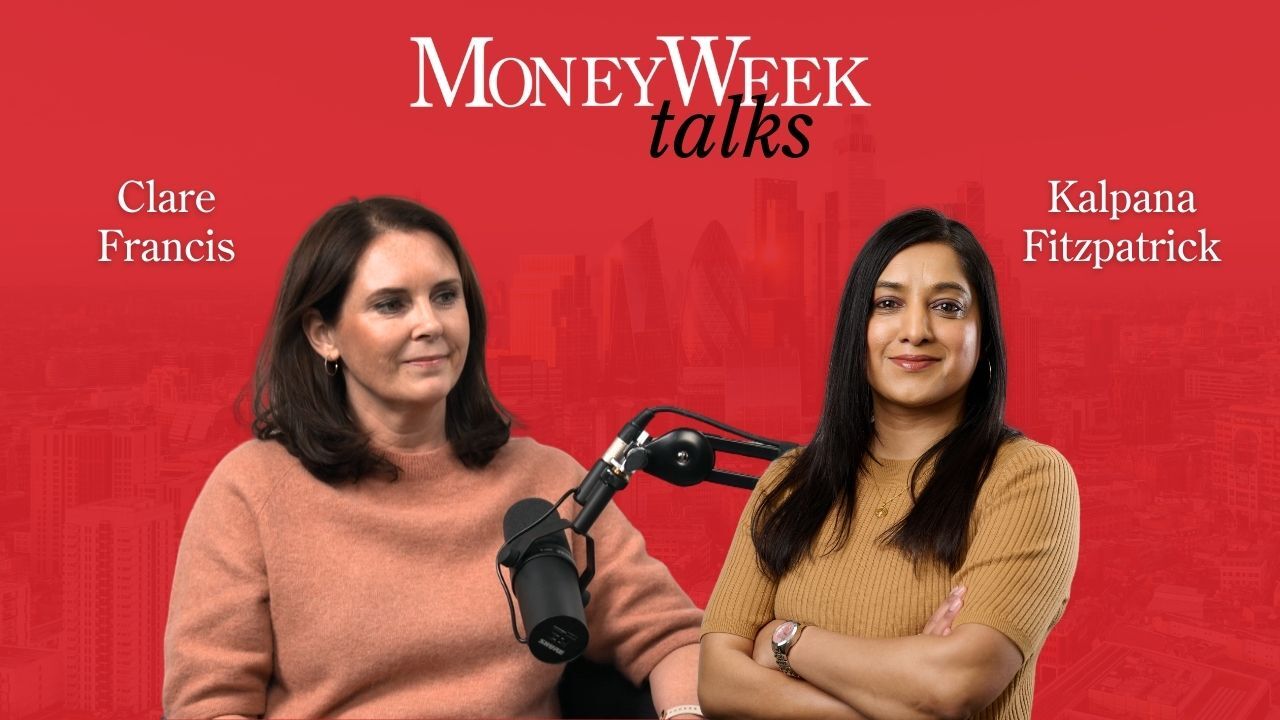Deliveroo keeps on growing – but when will it turn a profit?
Deliveroo is still growing its sales and competing with rivals Uber Eats and Just Eat for market share. But will it ever make a profit? Rupert Hargreaves reports.


Get the latest financial news, insights and expert analysis from our award-winning MoneyWeek team, to help you understand what really matters when it comes to your finances.
You are now subscribed
Your newsletter sign-up was successful
Want to add more newsletters?
Delivery group Deliveroo (LSE:ROO) is continuing to expand its product offering and its total order volumes, even as the boost to demand created by lockdowns tapers off.
The company was founded in 2013 by Will Shu and Greg Orlowski. Its first few years were challenging, but the pandemic changed everything. With most restaurants forced to close, stuck-at-home consumers had no choice but to order their meals through platforms like Deliveroo, Uber (NYSE:UBER) and Just Eat Takeaway.com (LSE:JET).
The group’s Gross Transaction Value (GTV) – the total paid by consumers – jumped 45% year-on-year in the second quarter of 2020, 65% in the third quarter and 77% in the fourth quarter.
Try 6 free issues of MoneyWeek today
Get unparalleled financial insight, analysis and expert opinion you can profit from.

Sign up to Money Morning
Don't miss the latest investment and personal finances news, market analysis, plus money-saving tips with our free twice-daily newsletter
Don't miss the latest investment and personal finances news, market analysis, plus money-saving tips with our free twice-daily newsletter
Some analysts had expected growth to slow as the world adapted to the new normal, but Deliveroo’s GTV continued to expand, rising by 114% in the first quarter of 2021 and 70% for the year as a whole.
Diversification is helping Deliveroo to grow in a tough market
Deliveroo’s motto is 'proper food, proper delivery’, but it has been diversifying into other markets to increase options for users.
A user in London opening the app today can order a range of products including fresh bread, alcohol, toiletries, condiments, pet food and even tobacco products, all to be delivered within 20 minutes. The firm is continually increasing the number of options on the platform in London and other regions.
During the first quarter of 2022, the firm expanded its Deliveroo Plus collaboration with Amazon Prime in France and Italy, and started a pilot with WHSmith to trial delivery from 10 branches across the UK.
Deliveroo’s concerted efforts to give consumers more choice seem to be yielding results. GTV expanded 12% year-on-year in the first three months of 2022, and 3% on the final quarter of 2021 when the omicron variant hit consumer confidence.
The company believes growth will continue throughout the rest of the year with GTV rising by 15-25%.
Despite healthy sales growth, profits remain out of reach
As these sales figures show, the demand for Deliveroo’s services is certainly there. Trouble is, the business is bleeding cash in the form of marketing costs. It is battling its main rivals, Uber Eats and Just Eat for market share, and the fight for eyeballs shows no sign of calming.
What’s more, Deliveroo and its peers rely heavily on “gig economy” labour. Pressure is only set to keep growing on them to increase pay and benefits for their workers. The firm is already having to work hard to retain and attract new riders in a tight labour market, only adding pressure to its finances.
As marketing costs build, the business expects to deliver an adjusted earnings before interest, tax, depreciation and amortisation (EBITDA) margin of -1.5% to -1.8% this year – in other words, a loss.
It is also unclear how consumers will react in the coming months as the cost of living rises. When every penny counts, platform users may rethink their spending habits and cut back on little luxuries like takeaways.
Deliveroo has shown the market that its business model has a future. But it is proving harder to earn an income from meal delivery. The company ended 2021 with no borrowings and £1.3bn in cash, which should be enough to fund the business for a few years at least. However, until the group can prove it is a self-funding sustainable enterprise, it seems likely investors will continue to treat it with scepticism.
Get the latest financial news, insights and expert analysis from our award-winning MoneyWeek team, to help you understand what really matters when it comes to your finances.

Rupert is the former deputy digital editor of MoneyWeek. He's an active investor and has always been fascinated by the world of business and investing. His style has been heavily influenced by US investors Warren Buffett and Philip Carret. He is always looking for high-quality growth opportunities trading at a reasonable price, preferring cash generative businesses with strong balance sheets over blue-sky growth stocks.
Rupert has written for many UK and international publications including the Motley Fool, Gurufocus and ValueWalk, aimed at a range of readers; from the first timers to experienced high-net-worth individuals. Rupert has also founded and managed several businesses, including the New York-based hedge fund newsletter, Hidden Value Stocks. He has written over 20 ebooks and appeared as an expert commentator on the BBC World Service.
-
 Are money problems driving the mental health crisis? MoneyWeek Talks
Are money problems driving the mental health crisis? MoneyWeek TalksPodcast Clare Francis, savings and investments director at Barclays, speaks about money and mental health, why you should start investing, and how to build long-term financial resilience.
-
 Pensioners ‘running down larger pots’ to avoid inheritance tax as rule change looms
Pensioners ‘running down larger pots’ to avoid inheritance tax as rule change loomsChanges to inheritance tax (IHT) rules for unused pension pots from April 2027 could trigger an ‘exodus of large defined contribution pension pots’, as retirees spend their savings rather than leave their loved ones with an IHT bill.
-
 What's behind the big shift in Japanese government bonds?
What's behind the big shift in Japanese government bonds?Rising long-term Japanese government bond yields point to growing nervousness about the future – and not just inflation
-
 Halifax: House price slump continues as prices slide for the sixth consecutive month
Halifax: House price slump continues as prices slide for the sixth consecutive monthUK house prices fell again in September as buyers returned, but the slowdown was not as fast as anticipated, latest Halifax data shows. Where are house prices falling the most?
-
 Rents hit a record high - but is the opportunity for buy-to-let investors still strong?
Rents hit a record high - but is the opportunity for buy-to-let investors still strong?UK rent prices have hit a record high with the average hitting over £1,200 a month says Rightmove. Are there still opportunities in buy-to-let?
-
 Pension savers turn to gold investments
Pension savers turn to gold investmentsInvestors are racing to buy gold to protect their pensions from a stock market correction and high inflation, experts say
-
 Where to find the best returns from student accommodation
Where to find the best returns from student accommodationStudent accommodation can be a lucrative investment if you know where to look.
-
 The world’s best bargain stocks
The world’s best bargain stocksSearching for bargain stocks with Alec Cutler of the Orbis Global Balanced Fund, who tells Andrew Van Sickle which sectors are being overlooked.
-
 Revealed: the cheapest cities to own a home in Britain
Revealed: the cheapest cities to own a home in BritainNew research reveals the cheapest cities to own a home, taking account of mortgage payments, utility bills and council tax
-
 UK recession: How to protect your portfolio
UK recession: How to protect your portfolioAs the UK recession is confirmed, we look at ways to protect your wealth.